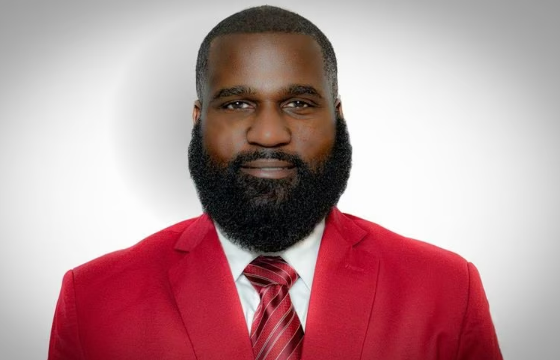Formerly Incarcerated Man Becomes The People's Lawyer
Ohio Public Defender previously served a 52-month federal drug sentence

In 2008, Damon Davis was serving a 52-month federal prison sentence in Kentucky for possession of cocaine with intent to distribute an an added weapons charge. While in prison, he befriended an older inmate who taught him how to pore through trial transcripts, looking for appealable issues that could reduce the sentences of fellow inmates. He learned how demonstrating improper police searches or the ineffective assistance of counsel could mean the difference between prison and freedom for real people.
Last month, Davis, 46, shook the hand of Ohio Supreme Court Chief Justice Sharon Kennedy as one of Ohio’s newest lawyers admitted to the bar. He now works as municipal trial counsel for the Hamilton County Public Defender’s office.
Before his arrest, Davis, the first of his family to graduate from high school, worked at an Amazon warehouse, where he walked around five to six miles a day processing orders. A knee surgery and lack of short-term disability pay left him facing eviction, and he entered the drug trade shortly after, leading to his 2008 arrest.
On his release from prison in 2011, Davis worked as a third shift dishwasher, walking more than six miles each work night to get back to a halfway house after finishing his shift at 2am. Eventually, he found a new job in Lexington, Kentucky, at a Jif peanut butter plant that offered full tuition reimbursement. He decided to enroll in a local community college, then eventually the University of Kentucky, where he'd continue to work the overnight shift at the peanut butter factory before heading to class in the morning.
Davis worked through law school at the University of Cincinnati as an overnight security guard on the weekends; another schedule of getting off work in the early morning and heading to class all day. In his second year, he started working as a fellow with the Ohio Innocence Project.
During his time at the Ohio Innocence Project, he wrote a paper proposing a legal concept called “contactless policing.” Looking at the deaths of young, Black men like Philando Castile, who was shot and killed by police on the heel of a minor traffic stop, his idea was simple: issue minor traffic citations by mail to avoid traffic stops before they can snowball into violence.
That paper would later be introduced as a bill in the New Jersey by Assemblywoman Shanique Speight, Davis’ sister. “I’m so impressed, and I get emotional each time I talk about him, and how proud I am of him. What he has been able to overcome. How smart he is. The work he’s doing," Speight said of her brother.
You can watch a WLWT-Cincinatti News segment on Davis' story, and read a University of Cincinnati feature about Davis' path to law school.










